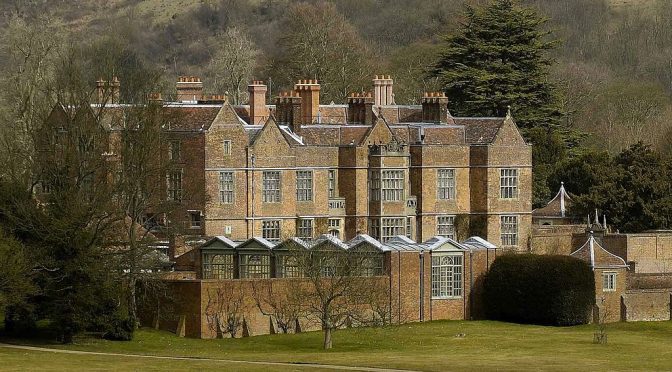Today Theresa May’s Cabinet are meeting at Chequers (the UK Prime Minister’s out-of-town residence) in an attempt to thrash out a final Brexit negotiating position with the European Union. As they do so, the biggest threat to Brexit seems not to be a realisation of its purposelessness, although that will surely come soon enough, but the process difficulty. This difficulty is entailed by a government reliant for its parliamentary majority on Northern Irish members who as extreme Unionists will not accept any further differentiation between rules and regulations applying between the UK mainland and their own country, as well as on extreme Brexiteers who will not stomach any residual taint of the EU single market and customs union. This sets up an irreconcilable clash with the EU’s shared commitment with its member, Ireland, who are adamantly opposed to any agreed additional barriers between the north and south parts of the island.[1] This opposition is both a matter of historical principle, as well as a practical concern over a reinstated ‘hard’ border being a focus for re-emerging intercommunity violence. Indeed Ireland and the EU both believe, a belief that implicitly is currently shared by the UK government, that the Good Friday Agreement (GFA) of 1998 commits all involved parties to the status quo in regard to the Irish border.
A final agreement between the EU and the UK therefore requires either the DUP reversing on its commitment against differential trade arrangements for Northern Ireland (NI) and the rest of the UK, or Tory Brexiteers reversing on single market and customs union exit. Since the Irish border status quo is already enshrined as a ‘backstop’ of the draft EU withdrawal agreement reached in December 2017, the only alternative appears to be a ‘crash-out’ Brexit in March next year without the proposed buffer of a ‘transition’ period. It has been suggested that this crash-out can be avoided (or at any rate deferred) by keeping the backstop in play without formally accepting it or rejecting it. Given the record of the UK’s negotiators to date, it is difficult to see Ireland, and thus the EU, being content with this suspension of disbelief.
Hovering in the background is the possibility of a general election triggered by the collapse of Theresa May’s parliamentary majority, either because the Brexiteer ultras are unsatisfied with the distance put between the UK and the EU institutions or because the DUP find any special arrangements for NI unacceptable. It seems unlikely that Conservative remainers would trigger the collapse of their government, but on the other hand unless they can credibly threaten to do so, they will have no leverage to ‘soften’ Brexit short of that.[2]
Essentially a further election introduces a random element, from which might emerge various scenarios: a Brexiteer-led Conservative majority able to push through the full English Brexit; a Corbyn-led Labour government likely to pursue a Brexiteer-feared Brexit-lite (although it is by no means clear that this Brexit is softer than the one the current government is most likely to end up with) or perhaps a second referendum; or more than likely a further Conservative minority administration albeit almost certainly now one with full Brexit leadership. The actions of Conservative and DUP MPs over the next weeks may depend on which of these scenarios they think most likely to occur in the event of an election.
One outside possibility, of which there seems to have been little political discussion but of which perhaps there would be more if Northern Irish republicans maintained a presence at Westminster or if the Northern Ireland Assembly were operating, is that of Northern Ireland going with its majority remainer electorate and sooner rather than later opting unilaterally to remain wholly inside the European Union and formally or by default shifting its alignment from the UK to Ireland. It is interesting to speculate whether this horrendous (to them) possibility has penetrated the well-constructed skulls of the Democratic Unionists.
[1] Despite much obfuscation by Brexiteers and the UK government, being outside the EU Customs Union must lead to the possibility of tariff imposition for goods as they pass from one side of the Irish (now UK/EU) border to the other. Failure to effectively enforce these tariffs will lead directly to revenue loss from current trade but also to behavioural consequences in terms of the focussing of smuggling and other criminal activity across this border. Being outside the EU Single Market also has consequences in the possibility of differential sets of standards for terms of goods and their production modes from one side of the border to the other. Once again the consequences of failing to police this border properly cannot simply be measured according to current levels of cross-border traffic.
[2] This scenario is complicated by the 2011 Fixed Term Parliaments Act which requires a two-thirds majority of the House of Commons or a vote of no-confidence to initiate a new election before May 2022.

